|
Michael Serwa, originally from Eastern Europe, is a life coach. He isn't an ordinary run-of-the-mill life coach, however, he's at the top of the coaching game. He really knows how to get to the soul of a problem. He's gained massive popularity since the launch of his book From Good to Amazing and is so in demand that people now pay up to 5-figures to get onto his calendar. I was honoured to be interviewed by him. If you have any questions at all about my business or starting your own, please ask them under his video. Watch here:
4 Comments
 On 17 October 2014 I was proud to be one of a large group of people that broke The Guinness Book of World Records for The Most Number of People Attending A Business Speed Networking Event At A Single Venue. Prior to this day the record was held by Australia and stood at 475 participants where each participant networked with 21 people. How Did It Work? The event was hosted by Entrevo. They sold tickets to over 600 people for Their Brand Accelerator Day at The Mermaid in Puddle Dock (Blackfriars, London) to take part in the event. They needed at least 500 people to show up to ensure that we had a chance of breaking the world record. 10 minutes prior to the event we were still 20 people short. The CEO of Entrevo, Darshana Ubl, and her team had been going crazy calling no-shows for the last hour trying to get to 500+. The Process:
Anyhow, long story short, the Entrevo team managed to get 510 people into the room prior to the start; Darshana went through how the rows would network with each other and speed networking began. I totally underestimated what hard work this would be. Because I was speaking to people in a lower row in a VERY loud room I a) had to speak loudly to be heard and b) sometimes had to bend for effective communication. The strain on my pregnant back was massive. On top of it all I needed to use the ladies almost from the start but the rules meant anyone that left the room was automatically disqualified. I’ve pretty much mastered holding my need for the loo for 2 to 3 hours so I was fine. The whole process took about 1.5 hours. Of the 22 people I spoke to only one was completely boring - everyone else was rather interesting; a few people I could possibly work with in the long run. The Results The Guinness Book Officials needed a few hours to count the papers. When the announcement was made the GB Official looked sombre. I was pretty sure he was going to say it had gone wrong. He started off with all the bad news: It transpired that in the midst of the speed networking drive some losers had left the room for “urgent” meetings and mundane reasons such as “I can’t do this”. He concluded with (and I paraphrase), “Australia holds the record with 475 attendees. Because although we started with 510 people many had to be disqualified, I’m here to tell you that…” he not only paused for effect but pursed his lips like he was reading a eulogy (and quite frankly Darshana looked like she might cry), “with 487 networkers you’ve beat the record.” Cheers all round. I even jumped out of my chair and did a happy dance. My only hope is currently that I wasn’t caught on camera because for a moment there, I completely lost my marbles.
Whilst I was in America hosting The Money Spot program in August 2014 Apostle Debbie Viggs Founder of The International Council for Women contacted me re. being featured as on of 6 African women to be celebrated. Of course I agreed. I was both honoured and humbled.
So many people ask me about being productive. This week, I decided to put some serious thought into it because I was asked in the sweetest way ever. I didn't want to fob my friend off with a rapid answer but having dug real deep, I thought I ought to share the knowledge because hopefully, it can help you too. The best time to be reading this post is if you're 11! The EmailMorning Heather, I woke up with a question on my mind, thinking how is it that you are able to be so super productive? Do you have a mentor that has literally guided you through and around all the pitfalls? So you've not had to waste gallons of time analysing rubbish? It takes time to 'physically' do the work, there's only so many hours in a day! Do you do a lot of outsourcing? I know you mentioned a mastermind group which is great for guidance and motivation... But I feel like I'm missing something! How do you organise your brain from distractions, your workload... Sorry if it feels like I'm being over curious, it's just that I've wanted to be successful for so long, years have passed, read and implemented so much stuff, got lost in the wilderness and you make it look so 'easy'! What's the secret? Warm regards x My Response Hey Hun, I have received this question a tonne of times in my life now so when you sent me your email my first response was a little chuckle, it amused me; my next response was genuine confusion: why do I keep getting asked this sort of question? And, I’m not talking about now when I’m 30 but I have a moment firmly stuck in my head from when I was 15 or 16 when this was asked the first time: One of my friends in high school asked me to help her with some calculus. She brought round some old exam questions for us to go through and after about 3 she stopped and said, “Heather, I’m kind of following what you say once you tell me which concept I should use to answer the question but I don’t even see that that’s the concept or principle I should use when I read the question. How do you see that that’s the approach you should take?” I didn’t have a real response. It was only a while later, in university, in fact, that I realized a genuine truth: the more you practice maths, the more the connections in your brain start understanding different interrelated concepts in a way that even you cannot explain. I was a low A / B student in maths when I was 11. My study method was to read the sample solution in a book then practice one or two of the questions. This is the formula for low A/ B results. Then one day I said to myself.: “What would happen if, just for fun, I started solving almost every question in the book rather than just one or two?” This meant that when it was time for me to study maths I would literally just do question after question until the concept bored me. In no time at all I was scoring 90% plus in every maths test and got an A* in GCSE maths plus enough confidence to do A-level maths and A-level further maths. By the time my friend asked me how do you do it, I had been practicing all the maths concepts we’d been taught intensively for 4 or 5 years and that is why I could read any question and immediately connect where my solution lay. I couldn’t teach that. For her to be where I was she would have had to go back with me 5 years and start practicing maths the way I had, then she’d see the solutions immediately - just like I did. Why am I telling you this story? Because this is the first time I can recall getting the “how do you do it?” question. My response to you will be of a somewhat similar nature. MISTAKES First things first, I do make mistakes. I make mistakes all the time. PAID COACHES I have paid to learn various things in my life, e.g. how to buy and use a video camera and a video editing course when I was very new to the game. However, I quickly learnt that most courses are useless. They’re pitched to the lowest common denominator and the content is usually something you can learn yourself on the internet. I don’t pay for coaches anymore, and for me to pay for any program it has to be very, very convincing. This is why The Money Spot Program has so much content and is so structured; I want people to find it invaluable. I join some programs / groups for the network more than the knowledge. They usually contain some good knowledge but the network is the important thing. I like meeting fellow entrepreneurs but normally I have done a lot of the things they teach already, multiple times. How Am I So Productive? I spent much of yesterday listing lots of things that make me productive but I concluded that it comes down to just two things: Good habits and a genuine love for work. Good habits can be taught, a genuine love for work can only be taught before the age of 3. After that it’s too late. What I call fun, some call work. MY REAL COACHES Whilst I haven’t been coached through every mistake in business I have had two coaches that just by living their lives led to the development of my good habits, they’re called mum and dad. A lot of my current behaviour was observed rather than taught. Organization My dad is the most organized human being on the face of the planet. He isn’t even OCD about it he just has a very structured brain that categorizes things very neatly. If my dad tells you a story he will tell you the exact dates it happened, or at least, year for less important things and it’s just a reflection of his structured approach to life. I’m the same way. I only came to realize that this isn’t that normal in university when someone asked why I’m always giving exact answers in general chit chat? Because my brain categorizes information in a very specific manner and I reflect that in speech and how I organize myself. Organization example e.g. if you look at the folders on my computer or my filing cabinet everything is in order and is always in a particular folder. If I want to find something I worked on I can usually find it in a few seconds flat. Most filenames on my computer have a date and a title that ensure that if I forget where to look for them a general computer search will locate them rapidly. When I look at most other people’s computers everything is a hot mess. Productivity and hard work My mum is hands down the most productive person I know. She does so much stuff that it’s even exhausting to watch her. My mum goes to bed around 11 or midnight and is up at 5 or 6 daily. I generally need 7 to 8 hours of sleep to feel normal she seems to function on just 6. In fact, I’m almost embarrassed that I, at 30, have less energy than my 55 year old mother. That said, watching her set my norm for what hard work is. Most people’s norm for hard work is different to mine. Even now, when you think I’m very productive, I think I could work harder and I currently only work within my pleasure limits. It’s only hard work when I start feeling the pain or the strain. Okay, so ultimately what can you do to be more productive? Lots of things! Note that the “Success” section of The Money Spot Program is all about being more productive and teaches all the stuff that makes people fail even when they have all the knowledge. I can summarize it as follows. The points below are general not a direct criticism of you because I only know your behaviour/attitude on only a handful of the below: 1. Don’t be a slave to technology. Technology is meant to be your slave but nowadays, for most people, it’s the other way around. Switch off all push notifications and only check / respond to messages twice a day or in your “relaxed work” sections of the day. Relaxed work is when I don’t need to work intensely on something. In the morning, I don’t usually respond to messages because I am focused on whatever my key task of the day is. I won’t even read a message if I see it. Focus is key and most of the time I just put the phone in another room altogether so that I don’t even get the urge to check it. 2. Don’t read or even answer every email the moment you get it. Prioritize your task of the day and only answer critical mail. It’s also important to have an organisational system for your inbox. You should have only one or two inboxes where all the important business and family stuff goes; then another inbox for email list signups and fan mail etc. 3. Use your important inbox as a secondary to-do list. During my 3 email checks of the day I make a very quick decision on what doesn’t need to be read at all and file it or delete it instantly. I immediately unsubscribe from anything I don’t want to see in there anymore. This means only things I need to respond to are ever in my inbox. However, some of them can wait for two months and I’ll leave them there until I need to respond to them. 4. Stop watching trash news and reading trash mags. My definition of trash news is pretty much all of it. Some people look down at me because I choose not keep up to date with stuff like Israel and the Palestine but as you say, there are only so many hours in a day. War news has never interested me and it probably never will. If it does, I’ll pick up a history book. For now, I’m content to look like a jackass when someone I am with decides to have a really in depth discussion about the Middle East. Personally, I hate those conversations, they don’t stimulate me, they depress me. I’d rather chat about the latest apps and new ‘treps. 5. Read and watch quality content. I only subscribe to and read Entrepreneur Magazine; I’ll take a sneak at People, OK and Heat and other such “entertainment” occasionally as I peruse the newspaper headlines in a store but I’ll never spend a dime on that type of content, no sirree, that’s a formula for time wastage and non-productivity. I enjoy watching Bloomberg GameChangers and similar programs. They make me feel motivated. 6. Take time to understand things properly. Whether it is video editing or website building you need to allow yourself the time to learn it. Once you understand it properly you will get faster at using the technology. Most people just get frustrated and give up. There is a tonne of free information on the internet and most people don’t use it at all . 7. Don’t do lie-ins! I don’t set an alarm unless I have to be somewhere but by the same token I don’t like just lying in bed. Personally, I like to be up by 7:00 a.m. or close to this time whether it is a weekday or a weekend. This makes me lazy because, growing up, my parents were always up by 6:00 a.m. regardless of the day. This set my norm. I actually feel awful if I wake up after 9:30 a.m. My whole being just says "What are you doing?" Of course, I acknowledge that some people work better at night, etc. but I think early to bed and early to rise is a genuine success strategy. 8. Live like a president! Okay, so above you’re probably thinking, what if you were out late the night before? I never am out too late. Wherever I go I always plan to be back home by midnight at the latest, ideally by 10:00 p.m. Before I had a car I would pre-book my cab to ensure this was the case. Even if I’m having fun I’ll leave at my planned time. It does make me a killjoy at times but do you think Obama parties until 5:00 a.m.? I did that stuff when I was a teen and I’m glad my dad let me because it got it out my system. My parents let me go out once or twice a week until whatever time I wanted from the time I was 15. As I approached 23 it got boring. 9. Listen to your body. Sometimes I’ll wake up and just not feel up to doing anything, work or otherwise. This is a signal that my brain is tired and I allow it to be tired. On these days I wake up around 9:00 a.m., shower and just watch trash TV. I know when my brain has recovered when it starts getting boring. 10. Rest adequately. I am über-non-productive if I’m tired so I always ensure I get enough rest. I have found that my sleep requirements in pregnancy have changed. Whereas I had to have 7/8 hours every night I seem to function very well on 5 or 6 at night plus one or two in the afternoon. This means my pregnant self can go to bed at 10 and will naturally wake up at 3 or 4 and feel like getting out of bed. I then make up for that after lunch. 11. Surround yourself with positive people. I don’t mix with negative people and people that I don’t find supportive because they will drain you and make you less productive. They’ll also make you doubt yourself. 12. Acknowledge that progress takes time. I have a couple of regular Virtual Assistants and use freelancers regularly for graphics etc. but I do a lot of the work myself. I write all my own blogs and books. I shoot all my own videos, frequently on my own and at times with Harry’s help. I edit all my own videos; record and edit all my own podcasts; build most of my own websites. It didn’t happen overnight but when you do a little something every day it begins to add up. 13. Be precious about your time. When you set yourself the goal of doing something make sure you do it in that time. Most people are so easily and quickly distracted. If someone calls them up for a coffee or a party they go even though they’re meant to be doing something else at that time. I’m like this with things I don’t enjoy, e.g. sales calls; I will find anything else to do instead of making that call because I genuinely have always disliked talking on the phone. If you don’t enjoy most of the tasks you’re working on, you’ll be less productive. I love to read and write so all the blogging comes very easily to me. 14. Say “no” more often that you say “yes” or charge for it. Someone asks me to do something for them (for free) almost every day nowadays. I used to just give my time willy nilly but I realized quickly that it’s not beneficial to do that. I barely have time to call my mum and dad so no one else should be getting first dibs on my time. The way I see it now is that my time is Little Zeusy’s time and if someone wants to take my little boy’s time they need to pay me for it, period. If they really value my knowledge they will pay for it because people always seem to find the resources to pay for the things they see as important to their own growth and development. If they don’t want to pay for my help then I don’t fall into that category for them and as such I don’t waste my time and I can focus my energy on my son’s growth and development. Even though I’m just 29 weeks pregnant I’ve been reading to him daily in the third trimester. The stories we’re reading are fascinating and I already can’t wait to read him my favourite stories from when I was a kid. I think that sums me up on productivity. It goes without saying that all productivity is based on preset SMART goals. H xx Click the image below to see my full program content and join it!  Want to Build a 6-Figure Beauty Business from the comfort of your sofa? Then my course is designed for YOU! "Beauty" includes a WIDE range of products from the not so obvious non-perishable foods and crafts to the more obvious hair, makeup, fashion, health & fitness. Learn more about The Money Spot Program. Leveraging Your Knowledge - It Is In Giving That We Receive - The Entrepreneur Dad Podcast, TEDP4/6/2014 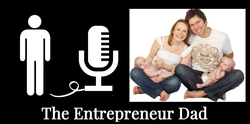
A few weeks ago I had the privilege of being interviewed by one of the biggest UK podcasters. He interviews solopreneurs and small business so that others can get inspired to leave the rat race and run their own businesses too.
What was interesting about the whole experience was that I didn't find him, he found me by discovering my Black Girl Getting To Wealthy series of books. I actually wrote those books for fun because I was just bursting to share the knowledge that I had about starting a business and doing well with your personal finances. Personally, I had no idea who would actually read the books because my fanbase hair focused and I didn't know if they were also into business and personal finance like that. What I ultimately discovered is that sharing knowledge inspires people in ways that you do not even expect. One lady who read the entire series of three books was so inspired that she didn't even hesitate to pay the $1,707 to join my program, The Money Spot - How To Start & Grow A 6-Figure Beauty Business. I didn't have to sell or explain the program to her in any depth; she said she just felt like I had been a huge blessing in her life and based just on my 3 books she had made $58,000 in 120 days so the cost wasn't even a consideration for her. She even said I was too cheap and sharing too much!! Anyhow, my point in writing this post is that sometimes we fell that by sharing what we know we create competition for ourselves. This could not be further from the truth; by sharing your knowledge you build trust and create a loyal following. In fact, those that copy you the most are the ones that love you the most and will be most willing to keep coming back to learn from you. Share what you know! But before that...Listen to my interview with The Entrepreneur Dad Podcast, TEDP:
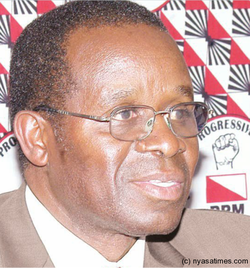 There are many things people don't know about my dad. The first thing you should know about him is that he's actually very uncomfortable with public speaking. If you see him speak at a public forum, know that he is operating outside his comfort zone. My dad's comfort zone is thinking. He is brilliant at looking at a situation and coming up with a completely new solution to it. He would never say it but he went from village boy to one of Malawi's first independent millionaires in an environment where the government hated his family. So much so that in his initial years of business until 1994 he operated as Mark Phiri (Phiri being his tribe name) rather than as Mark Katsonga (his actual surname) for fear that the government may persecute him for being his father's son. His father was a former political activist. Anyhow, on many occasions the University of Malawi invited him to speak to students to tell his story but he always refused because the idea of public speaking just made him uncomfortable. Personally, I think he doesn't even realize how brilliant he really is and that added to his discomfort. I am as enthralled by my dad's brilliance as the next person so in July 2010 as we took a long drive to Neno village with my then boyfriend Harry I asked him to tell me his story. Harry was sat in front with the driver, I was sat in the back seat with my dad. I forgot about these recordings until today but I am so glad I have them. The great relationship we have really comes through and I am uploading these recordings as much for myself as for everyone else; I know I will relisten to them again and again if they are online. In life, money comes and goes but no one can take away past achievements or the life experiences that have made you, you! Episode 1 (roughly 45 minutes)From the very beginning of our chat you can tell that my dad starts off feeling uncomfortable at the thought that this recording will be publicised. I lie to him that I won't record and he instantly chills out. Early years to Police Business 1 (aged 11) - Kachasu - a business ran with his mum and siblings. Business 2 (aged 12/13) - Zitumbuwa - his first independent business. Business 3 (aged 14/16) - vegetable growing and selling - his second independent business. Episode 2 (Roughly 50 Minutes)His years in the police, at SoBo company and his decision to go Zimbabwe for further education. Dad's brief stint as a houseboy (about 2/3 months). Basically, my dad was walking about with a friend and his friend saw a job ad for police recruits. He asked my dad to accompany him to inquire about the job. When they entered the police station the officer on duty laughed at the guy and said he was too short but that his friend (my dad) looked about the right height. My dad had no ambitions to be in the police but when he told his family about the opportunity they essentially forced him to do it because he needed a job. He decided he would do it for 6 months before moving on but on his first day he discovered that as soon as he was sworn in he was committed for four years. After lunch he pretended to be sick to buy himself time - that cracked me up. It bought him a month of time because the ceremony was only held once a month on the 5th of the month. His uncle gave him a right bollocking for messing about so he went to the village to tell his mum so she could back his decision not to join. Unfortunately, he told her the story in front of another villager who said - "Ntchito imeneyo ndi yabwino, posachedwa pano akhala kopulo" (That's a great job, very soon he'll be a corporal). His mother was sold. My dad cried tears as he felt sorry for himself! Saving In this episode he also reveals what an astute saver he was. He received 18 kwacha per month in the police: Mwk5 was spent on foods that don't rot (sugar etc.), Mwk5 was sent to his mum in the village to help her with household items, Mwk5 was banked to fund the education of his siblings and Mwk3 was his pocket money. Over the four years in the police his salary grew to Mwk4. He says some of his fellow police officers would borrow so much money through salary advances that at the end of some months their salary was negative but he stayed disciplined. He did not go to the staff tuck shop even once in four years. Business He still had the business bug and was operating a fruit business as a sideline whilst he was a policeman although that was not allowed. He got caught a mere 6 months before 4 years was up and was punished by being made to become a uniformed police officer after being in his civilian clothing for a long time. It didn't sit well with him and added to his reasons not to renew his contract with the police a few months later. I say it was fate. Houseboy For about a period of 3 months my dad worked as houseboy for a white man for a salary of Gbp3 - about Mwk6. Salesman Dad became a salesman for SoBo after leaving the police. From a salary of Mwk24 he started earning Mwk56 then Mwk65 once he was confirmed plus sales commission. He would earn over Mwk200 in some months because he was so good at selling. At around the time he had about Mwk2,000 in savings an incident occurred where he was being forced to go to work in Chikwawa but he didn't want to go there because he had contracted Malaria on a recent stint there to the point of being hospitalized. He quit the job. Episode 3 (Roughly 35 Minutes)Living in Zimbabwe including visa issues faced in Zimbabwe and working for Unilever. My dad decided to realize his life-long ambition of furthering his education. He bought a one-way ticket to Zimbabwe for Mwk39. On arrival, a kind Malawian stranger that he had met on the flight allowed him to stay with him for the night. When he got to his college he was shocked by the living conditions. Four men shared a room and slept on mats (mphasa) with limited amenities. Now that he had worked for a while and had lived better than this throughout his time in the police and as a salesman it just felt horrid but it was all he could afford. As fate had it he had the address of an uncle in Zimbabwe - the man had married his mother's youngest sister but they had never met before. He visited him very early one morning (before 7 a.m.) to introduce himself. After he told his uncle where he was staying and his uncle told him it wasn't a good place; he instructed him to collect his luggage and come to live with him. His uncle wasn't rich either; in fact he had to share his room with my dad to accommodate him. His wife was stuck in Malawi at this time so he was essentially just living with his daughter. Living with his uncle allowed my dad to take even more courses at his college because he saved money by not having to pay his uncle rent. Race Relations Relations between whites and blacks in Zimbabwe were not as friendly as they were in Malawi. My dad went to Zim on a tourist visa and after 3 months had a lot of trouble with the Zimbabwean authorities. Ultimately, they gave him a "stupor" which basically required him NOT to live in any Zimbabwean town; he was relegated to the village... From unilever to his tailoring business which he sold for a healthy profit to his candle business (Candlex) that led to his name becoming a household name. Dad returned from Zimbabwe in the late 1970s with his diplomas and secured a job at Lever Brothers, now Unilever. Whilst there, after work he ran a business called "International Trade Contact" in which he got the contact details of various suppliers and enabled people to fulfill purchase orders. After that in 1981 he started a tailoring business. He invested Mwk1,500 in the business and hired a tailor to sew and someone he knew to run the operations/sales. He later discovered that the competition was extremely stiff so 1981 and 1982 were very tough for the business. By 1982 the business had assets of Mwk5,000 and loans of Mwk12,000. He decided to sell up. After putting an ad in the paper he was surprised to get 12 offers, he hadn't expected to get any. Incidentally, because the Government had reserved tailoring businesses for Malawians there was huge demand from Indians for tailoring businesses that had licenses. My father didn't have one and the process for getting one was long and painful. Ultimately, though he sold the business for Mwk25,786 plus Mwk4,000 for the working capital. That bid of Mwk25,786 had been on the table for 2 months before he finally got the license and the bidder was losing patience - there quite a few sleepless nights. The day they drove to get the business license from Lilongwe my dad said he felt like it was pure gold. It was approved by Mr Malange, now my cousin's Grandpa but this was well before that happened. After his auditors had paid all creditors (and themselves) he had Mwk18,000. He used Usd4,500 to buy a candle machine from Japan. This was a time when Malawi kwacha was still pegged to the pound and was much more valuable than Usd. Usd4,500 was about Mwk3,000. What happened next was pure magic. In 6 months of launching the candle business he had Mwk150,000 - we're not talking turnover here, we're saying saved up! Quite shocking when you consider that each candle was selling for just 10 tambala each and cost 4 tambala to produce. Keep in mind this is still 1983 - basically, when little Heather was born in November of that year business was booming, the sleepless nights were a thing of the past. How he went from struggling with the tailoring business to being so cash rich you'll have to listen to find out. Episode 4 (Roughly 60 Minutes)Episode 5 (Roughly 30 Minutes)The early years of Candlex continued. In this episode I ask my dad how he came up with the name Candlex and I also want to know why he didn't buy a Mercedes Benz the moment he was cash rich. This is the modus operandi of literally every guy I know who sniffs the littlest bit of cash. By the end of 1983 he had the funds to afford a Mercedes but he kept his little Datsun and didn't get a "flashy" car until 8 years of good business later in 1990. SummarySome people immediately will immediately say, he was lucky. To a certain degree, yes, he was, but the luck was generated by his own actions. In the first episode you will note that my dad's friends were mostly playing when he was 11 but he was helping with his mum's business. Throughout the story you will notice that there are two things completely absent: drinking and football. I have never seen my dad watch sport. As he said in his story after work he was always researching the next thing or working on a business. It took 20 years of practice before he got his lucky break. How long have you been practicing?
 When I first arrived at my boarding school I was three weeks late because I had started off at another school before my parents decided they preferred this one. To cut a long story short, friends had been made and penetrating the existing cliques was a task I could not be bothered with. Being in the middle of nowhere I set myself up with a rigorous study schedule (for an 11 year-old) which resulted in me reading and doing homework for at least four hours every single day from the beginning of term. From a marketing perspective, what does this mean? If you create a brand that has multi-level sensory appeal, that is, it has a look, a feel, a smell, a tag-line or even a jingle, even when one or several of those elements are absent people are reminded of your brand. And if they like it, they want it. A McDonald’s fanatic merely has to hear the McDonald’s whistle to start craving a Big Mac. The theory of neuroplasticity is not limited to marketing - reading between the lines I realised that it applies to learning things in general. For instance, when I first went to high school in 1995 I found school a bit of a challenge. I wasn't failing, far from it, but I was a borderline B/A student. I am currently re-reading Brainfluence by Roger Dooley. It is hands-down the best neuro-marketing book I have ever read and all other books simply don't math up. Anyway, on a second read or watch of something you always learn something new and on this occasion one theory really caught my attention. The theory is technically called "neuroplasticity" and was first proposed by Sigmund Freud then was later elaborated upon by a Canadian psychologist called Donald Hebb; it was finally summarised in six words by the neuroscientist Carla Shatz as: “Neurons that fire together wire together.” This theory just helped me understand some of the things I have observed in my life but never really understood. Lessons finished at 3pm and I was in the library 3.30 to 5.30pm as standard and then I went to dinner. Prep time was 6.30-8.30pm and I studied then too. I started doing homework during break time and lunch time so all four hours could be spent studying. At first I used to find recall a little challenging but the more I studied, the easier it got and the more I enjoyed it. With maths, I quickly learnt that when you practice the problems in preparation for an exam instead of just reading the solutions sets in the book you really came to understand the topic so that's what I did. I became so good at memorising that I didn't even realise the point at which I stopped memorising and started understanding things. It appeared that the more I knew the more I could relate seemingly unrelated topics especially in maths. By the time I got to university I didn't think learning was hard anymore - in fact - by comparison, I can say I found the University of Cambridge easier than high school! But this is where it gets interesting. Throughout my life I have taken an interest in being coached and having a mentor and I think this theory of neuroplasticity applies to coaching very well. I am not into feel-good motivational coaching that makes you feel good about yourself without any practical steps. Feeling good about myself is not something I have a problem with and the few times that I might have that issue, I can just call one of my doting younger sisters. When it comes to practical action-based coaching you learn so much information in such a short space of time and with that synaptic impulses must be flying all over the place in your brain. By being coached and learning from someone else's experience you cut the learning time and get to your goals a lot faster than if you had to make every mistake by yourself. Having all the knowledge sitting in your brain at the same time creates a multiplier effect. It’s a case of 1 + 1 = 3. A lot of people don't take much interest in coaching and learning once they leave the formal education system but I think those that do achieve a lot more, faster. The first step in educating yourself is in reading books that feed your brain. The next step is to either take courses with like-minded people or form voluntary groups and societies with people that you know you will learn from. In doing so you will achieve any goal, financial or otherwise, more rapidly than taking the trial and error route. "I never cease to be amazed at the power of the coaching process to draw out the skills or talent that was previously hidden within an individual, and which invariably finds a way to solve a problem previously thought unsolvable." John Russell For inspirational quotes follow @Getting2Wealthy on twitter.
 Check out Toia's Natural Hair Regimen Check out Toia's Natural Hair Regimen Making money via elance.com is tough if you live in a developed country because the cost of living is so high. Fact: people want to hire someone in the US or the UK because there are no language barriers and they generally expect a better quality finish; however, when they compare our rates to those of much cheaper and equally qualified people in Asia, they can't justify selecting a UK- or US-based person. I stumbled upon a guy who made almost $24k on elance in a month by analyzing it and coming up with a winning formula: Hacking Elance – The Step by Step Guide to How I Made $23,700 in 4 Weeks He's mixed race/black so it can't be said that it wouldn't work for a black person. I am very impressed by the fact that he really took time to analyze the platform and came up with his own winning formula before jumping in. The beauty of using videos to pitch is that people get to:
Any way, I only use elance to hire, if I ever want to make money via the platform I will definitely re-read Daniel DiPiazza's tips in Hacking Elance – The Step by Step Guide to How I Made $23,700 in 4 Weeks
 It's 10.30 p.m. and given the day I have tomorrow I really should be in bed but I just felt I had to write a testimonial for Weebly, AGAIN! Here is my first review, written in early 2012 - two years ago. The web-building service that Weebly provides has developed enormously in the last couple of years. These are my favorite things about weebly: 1. Easy To Use There is ease of use and then there is weebly. Whoever came up with the user interface has a mind like Steve Jobs. Weebly is super intuitive and you can figure out how to use it without using their FAQ pages and without any coding skills whatsoever. When I started using Weebly in 2010 I figured out what to do immediately. 2. Fair Pricing Their pricing is ultra fair. I have been subscribed to Entrepreneur magazine for a few years now and every now and again there's an advert for a new drag and drop web builder. I usually go to the website to see how they compare to Weebly and EVERY SINGLE TIME they are charging more than Weebly but offering less. I get so incensed by it! This brings me to my next favorite feature... 3. Great Variety of features You can do whatever you want to do with Weebly without having to write any code. Changing fonts, colors, headers, the features of the blog side bar is ultra easy. You can change the entire look and theme of your website at the click of a few buttons and I have done that several times myself without any stress. 4. Fast Rate of Development Weebly are developing new features all the time and my business has been growing with them. Importantly, weebly allow customers to suggest new features and they take suggestions seriously. 5. Customization A lot of people ask why I prefer weebly to WordPress. This is the biggest reason: when I visit a WordPress site I usually know it is WordPress. Many of their themes have a similar feel. I have tried to use WordPress in the past and I don't think they are nearly as easy to use as Weebly. Conversely, Weebly is so customizable you can make your site look very different to any other site out there. I run over 10 websites with Weebly and they all look very different. 6. Mobile friendly The mobile version of a Weebly-based site which comes as standard is second-to-none! This applies to both the general webpages, blogs and eCommerce. I think them coming into eCommerce later paid off rather than backfired because they appear to have learnt from the mistakes of all the eCommerce platforms that came before them. That brings me to my next point... 7. eCommerce I have been struggling to decide whether or not to use the recently launched eCommerce feature on Weebly. I have been using sellfy.com for digital goods for over a year now and they are quite good. I also tried DPD and they were quite good too. A friend recommended 3dcart very strongly but I thought they were awful. Even with a First Class degree in Economics from Cambridge I was struggling to use 3dcart. It was not easy. I thought that being so new Weebly’s eCommerce facilities would be far too basic for my needs. I deliberated over it for a couple of weeks and ultimately thought to myself:
The answer was yes to all three questions so I bit the bullet and paid the $469 fee to use the platform for two years. The amount sounds high but if I consider the fact that I am paying $135 to MailChimp monthly, it's not much at all - it's $19.94 a month. When Weebly create an email management system they have a good chance of getting that business too because I don't feel MailChimp's pricing makes sense at all...but that's another story! After two days going through Weebly's eCommerce thoroughly, I don’t regret it. In fact, for suggesting a feature improvement Weebly gave me a couple of extra months for free! That brings me to my final point: 8. Awesome customer service From the start, Weebly have responded to emails in 24 to 48 hours. Although they have grown massively, they still respond promptly. As someone with a small business growing faster than I can believe I know how tough it is to maintain that kind of responsiveness so I really appreciate it. IN SUMMARY... ...If Weebly was a man, I would say we were engaged before and with me buying into the eCommerce platform – we just got married! This is a tool I believe I will be using for life. Weebly makes my life easy. It has simplified my life for coming up to four years now and the day I discovered Weebly is one of the best days of my life – and trust me, I have had a very good life! lol
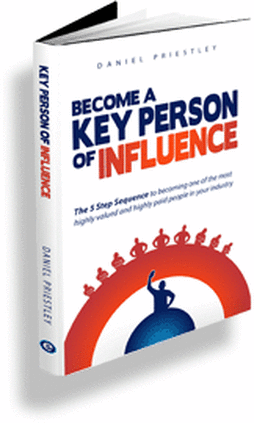 On Friday I went to the key person of influence entrepreneurial event. I enjoyed it. In my honest opinion this is the first entrepreneur coaching program that I have wanted to join for two reason:
It was all very, very credible. Cherie Blair opened the day with key note speech on her charity, Foundation For Women. These were the key discussion areas, I won't go into detail:
Interesting stats: Of the 4.8 million businesses in the UK, 96% are small; 80% of the revenue made in an industry is typically made by the top 10% - the key people of influence, you want to be in that top 10%. Speakers/case studies:
Other case studies included (but are not limited to):
On products EntRevo discussed having core products and complimentary products that support the core products. All-in-all, I think this is a worthwhile coaching/mentor program and if you want to take your business or idea to the next level attend one of their talks. They are currently already operating the UK, US, Singapore and Aussie. Ultimately, I decided that I want to join the next round of KPI coaching in March 2014 because my business will gain much more at that stage.
|
Archives
December 2015
Categories
All
By Heather Katsonga-WoodwardI'm always thinking, debating, considering and revising my views - some of those deliberations will be shared right here. |

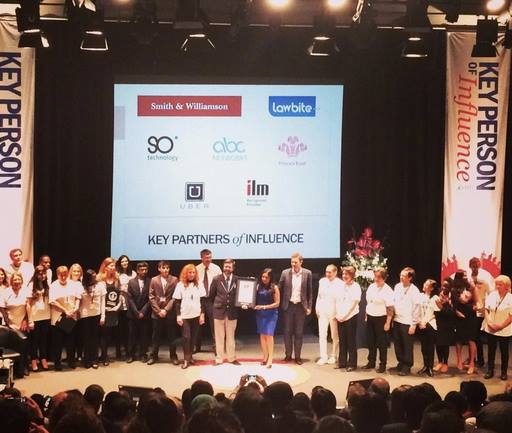
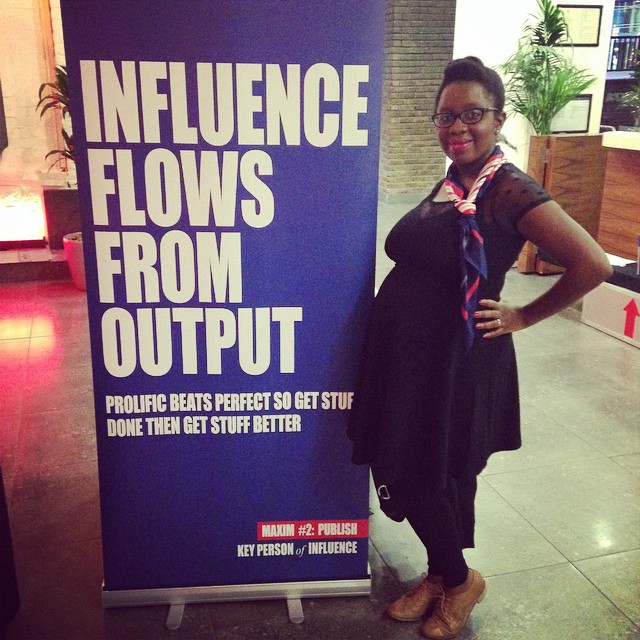
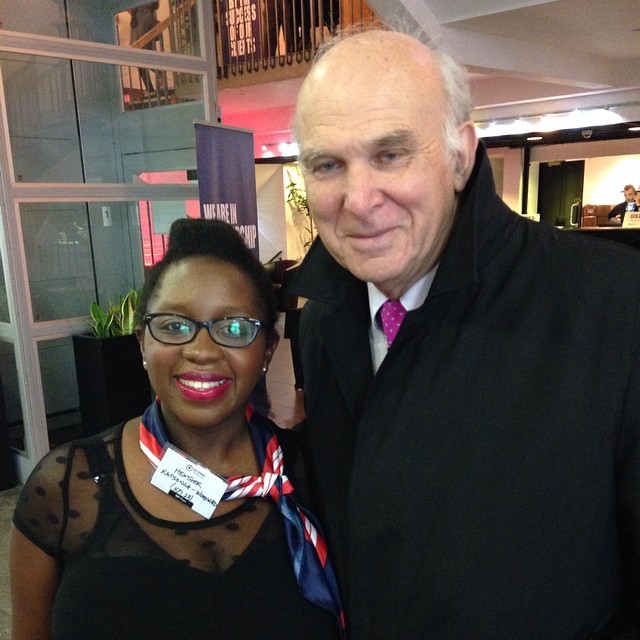
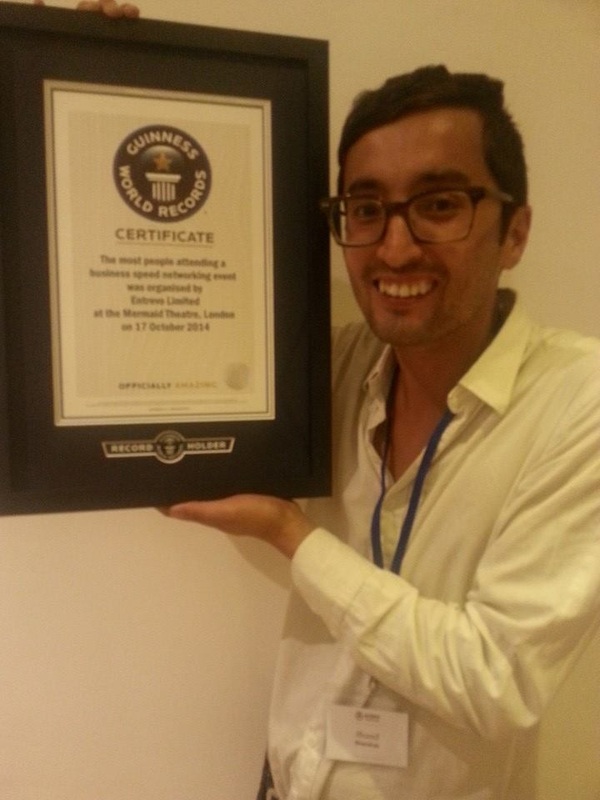

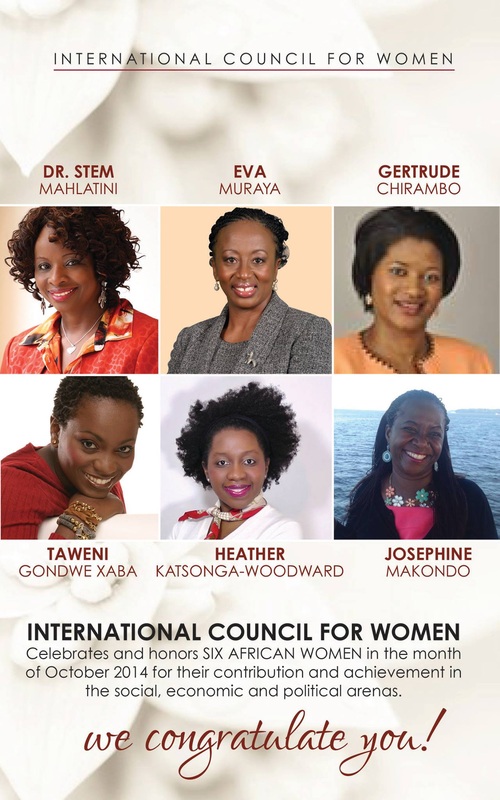








 RSS Feed
RSS Feed
